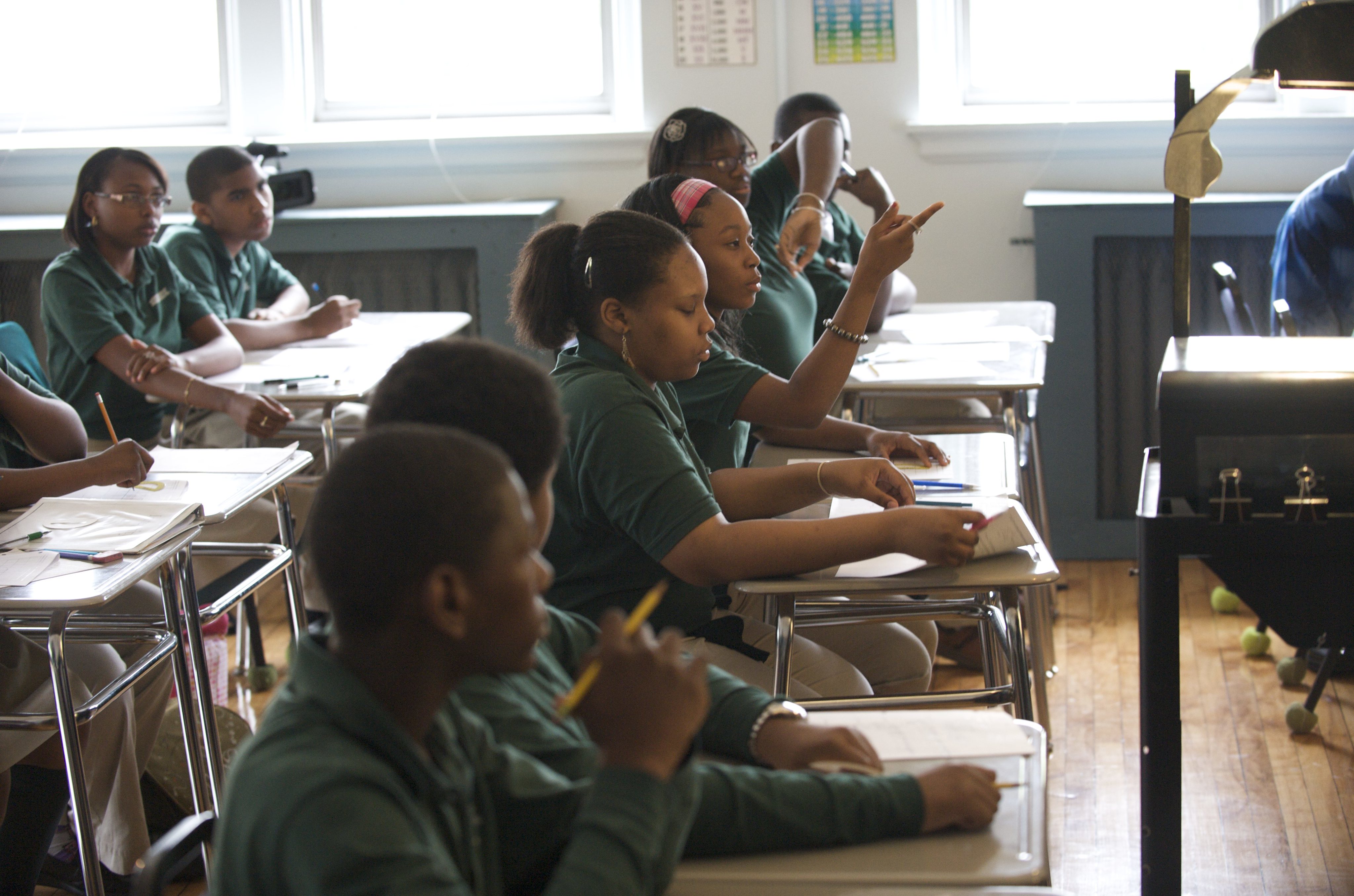Across the country 46 states[1], including the District of Columbia, have closed schools. Beginning on March 16th, District of Columbia Public Schools (DCPS) closed to slow the spread of COVID-19 and will remain closed through at least April 24th, following the Mayor’s declaration of a public health emergency. Public charter schools in D.C. are also respecting this guidance. Schools are offering distance learning during this time. In response to school closures, the U.S. Department of Education and D.C.’s Office of the State Superintendent for Education (OSSE) are adapting policies to fit this time of uncertainty and disruption.
National policy changes
The Department of Education has compiled a list of resources to disseminate critical information about COVID-19 to students, families, educators, and community members. Most importantly for D.C.’s public schools, the Department of Education is permitting states to skip annual standardized tests and the CARES Act establishes new sources of funding to respond to these exceptional circumstances.
Given widespread school closures necessitated by the COVID-19 pandemic, states that are unable to administer their assessments in the spring of 2020 may submit a waiver to excuse them from certain reporting requirements mandated by the Elementary and Secondary Education Act of 1965 (ESEA). This means that D.C. will not be able to make annual accountability determinations for schools, identify schools for support and improvement, or provide data on state report cards for assessment and accountability information. This fact sheet provides more information on the impact of COVID-19 on state assessments and accountability systems.
The Department of Education has also issued guidance on the Individuals with Disabilities Education Act (IDEA), existing law which provides for how to provide a free and appropriate public education to students with disabilities. As schools transition to distance learning, some educators have struggled to teach students with disabilities because they believe federal disability law presents insurmountable barriers to remote education. On March 21st, 2020, the Department of Education clarified that federal law should not prevent schools from offering educational programs to all students through distance instruction. The Department says that many disability-related modifications and services can be effectively provided online. For example, extensions of time for assignments, videos with accurate captioning or embedded sign language interpreting, accessible reading materials, and many speech or language services through video conferencing.
The CARES Act also establishes an Education Stabilization Fund with $31 billion dollars that will be available through September 2021. An estimated 10 percent of these resources will be awarded to governors who apply for the funding based on the population count (ages 5-24) and enrollment in kindergarten through grade 12. Of the remaining funds, 44 percent will be allocated to state education agencies like OSSE based Title I allocations for general use or response to Coronavirus, including increased mental health supports, summer school, cleaning, and other uses. The other 46 percent will go to higher education institutions, allocated mostly based on the number of Pell recipients.
State education policy changes
OSSE is also reacting to national policy changes and adapting D.C.’s policies to fit the needs of schools and students, especially with regard to attendance policies, school meals, and childcare.
OSSE has received preliminary approval from the Department of Education for a waiver that allows OSSE to cancel statewide assessments and suspend the calculation of new STAR school report card ratings for the 2019-20 school year. It is not possible for OSSE to fully conduct state assessments (including PARCC and ACCESS, which determines English learner status and exit) this year given school closures, and this makes it impossible to calculate STAR ratings. OSSE is still considering whether to report on other metrics in the school report card for the dates that school was in session.
OSSE is modifying its school calendar and attendance policies to take school closures and increased absences into account as the District responds to the COVID-19 outbreak in the United States. Effective March 9th, 2020, if a school closes, the school calendar must be updated to reflect that the days during which the school was closed were non-instructional days, meaning attendance would not be recorded for any student. If a school remains open, absences resulting from prescribed quarantine by the DC Department of Health (DOH) for individual students or populations within the school should be excused, if accompanied by appropriate documentation as determined by the LEA attendance policy.
OSSE strongly encourages schools to feed children during closures, although it is not required. The United States Department of Agriculture (USDA) has provided LEAs with two options for providing meals to children: the Seamless Summer Option (SSO) and the Summer Food Service Program (SFSP). Both options require OSSE approval, can be reimbursed for up to two meals each day, provide meals to children 18 and younger, and provide meals free of cost to children. LEAs are advised to create a plan to provide meals quickly through a grab-and-go style service to discourage children from congregating at these locations.
On March 13th, 2020, OSSE activated the District-wide Child Care Disaster Response Plan (CCDRP). For the duration of this activation, OSSE will continue to provide payments to facilities that receive childcare subsidies. If a facility closes, they must notify their OSSE education service monitor prior to closing to receive approval. If a facility stays open, children who remain home will be considered excused. The facility will receive the full-time rate for children on days that DC Public Schools (DCPS) remains closed. All parents receiving child care assistance will have their copays waived.
OSSE anticipates making additional policy updates in the coming weeks:
- Impact of school closures on the D.C. school year duration requirement (“180-day rule”) and any necessary flexibilities that OSSE may provide to LEAs and schools
- Impact of school closures and student attendance on data validation
- Impact of school closures and student attendance on accountability.
[1] As of March 23rd, 2020.
Find more of the D.C. Policy Center’s COVID-19 analysis here.
Feature image: U.S. Department of Education (source)
